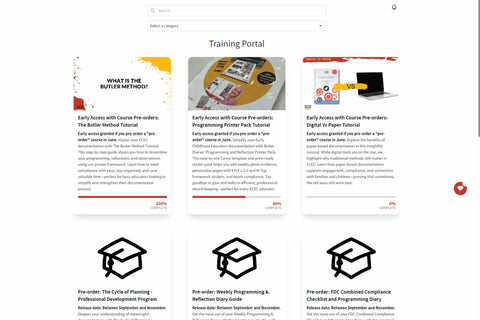Tradie Talk
-

Tips for Managing a Team in the Construction Industry
In the dynamic field of construction, where projects evolve at a rapid pace and timelines are tight, effective team management is the cornerstone of success. As leaders, Site Supervisors, or Project Managers, guiding a diverse workforce towards a common goal requires more than technical know-how; it demands a harmonious blend of leadership skills, interpersonal insights, and an unerring focus on the bigger picture. -

Building a Safer Future: The Rising Focus on Health and Safety on Construction Sites in Australia
Australia's construction industry, like many others around the world, has seen a significant shift in recent years towards prioritizing health and safety on construction sites. As the industry continues to grow and evolve, so too does the recognition of the importance of ensuring the well-being of workers and the general public. This blog post delves into the increasing focus on health and safety in Australian construction sites, exploring the driving forces behind this positive change and the measures being taken to create a safer working environment.
-

Embracing Sustainability: Green Practices in the Australian Construction Industry
As the world becomes more environmentally conscious, the construction industry in Australia is stepping up to the challenge by adopting sustainable and green practices. With a growing emphasis on reducing carbon footprints, conserving resources, and creating eco-friendly structures, the Australian construction sector is paving the way for a greener future. We will explore some of the key sustainable practices that are shaping the industry and the benefits they bring to both the environment and the community. If you're a business owner, it's important to consider these principles and implement them into your own business or risk getting left behind.
-

Which Trade Earns The Most?
Are you wondering which Trade Earn the most? Here is the Australian Trade that is one of the top earning Trades. -

Which Tradies Get Paid the Most?
Are you wondering which Australian Tradies get paid the most? Curious to see if your Trade makes the list? Or maybe you're planning your career?
Here's the countdown to which tradie gets paid the most!
-

Tax Tips for Tradies
If you're a tradesman in Australia, then you know how important it is to manage your taxes effectively. It can be daunting to figure out how to stay on top of your financial obligations, but with a few key tips, you can make sure that you're staying compliant while also maximising your deductions and minimising your tax burden. Here are some essential tax tips for Australia tradesmen: -

Tips for using your Construction Diary: The Diary for Tradies
As a tradie, staying organised is crucial for effectively managing your projects, communicating with clients and suppliers, and ensuring smooth operations on site. One invaluable tool in your arsenal is The Construction Diary, a comprehensive record of your daily tasks, job details, and important communications. The Construction Diary is the ultimate Tradie tool designed for all Aussie Tradies.
-

How to Become a Tradie in Australia
In Australia, becoming a tradie is a popular career choice for those who prefer hands-on work and practical skills. A tradie is someone who has completed a trade apprenticeship, which involves a combination of on-the-job training and classroom learning. This article will outline the steps you need to take to become a tradie in Australia. -

10 Simple Marketing Tips for Tradies
Marketing can be a challenge for trades businesses, but it is essential for attracting new customers and growing your business. With the right strategies, you can effectively market your trades business and stand out from the competition. In this article, we will share some effective marketing tips for trades businesses. -

Tradies who Don't Turn Up and the Impact on your Business
Tradesmen are an essential part of the construction and renovation industry, and their role cannot be overlooked. They are responsible for the building and repair of homes, offices, and other infrastructure that are crucial to our daily lives. However, turning up for consultations or projects is just as important as their work itself. In this blog post, we will discuss the significance of tradesmen turning up for consultations and projects, and the impression it leaves on their customers. We will also provide tips on how to say no to a job or customer politely rather than just not turning up. -

The Tradesman's Guide to Toolbox Chats and Pre-Start Meetings
Toolbox chats, also called safety chats or pre-starts, ensures that everyone on the job site knows about potential hazards, regulatory issues, and best practices for completing the job safely and efficiently. Toolbox chats and pre-start meetings are essential for keeping your Trade business safe. We break them down here. -

What type of business structure is right for you as a tradesman? Sole trader, Company, Partnership, or Trust?
If you’re starting up a new business or are looking at re-structuring, you may be trying to understand the differences and benefits between a Sole Trader, Company, Partnership, and Trust. But what do these terms mean? Can one over another save you money? What can and can’t they do? In this guide we explain each option in detail, so that you can decide which form of business structure best suits your needs and requirements. -

Tools of the Trade: Why Apprentices Should Bring Their Own
Most tradesmen expect their apprentices to provide some of their own tools and equipment necessary to perform their work and learn the trade. There are many benefits to the practice of asking Apprentices to supply their own tools. We break down what you and your Apprentice are responsible for and the benefits. -

The Do's and Don'ts of Dealing with Time Wasting Customers
Unfortunately, some customers can turn out to be more trouble than they’re worth. These individuals will waste your time by constantly changing their mind, asking you to do things they could easily do themselves, acting like they are the qualified tradesman, or simply not knowing what they want at all. Dealing with these types of customers can eat up your day, preventing you from getting important work done or spending time with your family! We unpack the warning signs of time wasting customers and the dos and don'ts of dealing with them.
-

7 Traits of the Ideal Tradesperson with Handy Tips
In any industry, being the best at what you do comes down to both talent and hard work. But whether you’re an electrician, builder or plumber, there are certain traits that go above and beyond the basics in terms of impressing your clients and providing value to them above and beyond what they paid for. If you want to be considered among the best in your industry, then keep these seven traits of the ideal tradesperson in mind at all times.




























